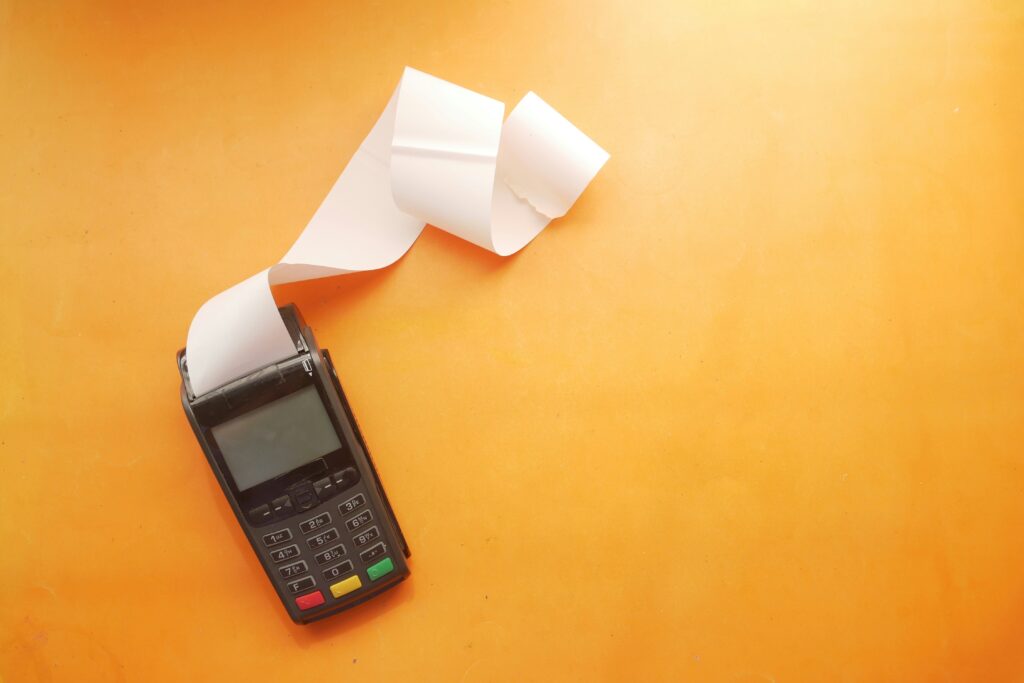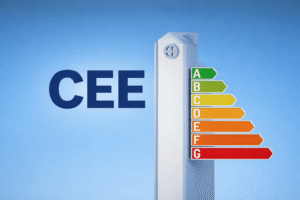You have decided to buy a primary or secondary residence, or to make a rental investment in Spain. With Terreta Spain, the real estate purchasing process will be considerably simplified, especially if you do not live in Spain. Our bilingual experts will be your primary contacts, answering all your questions and supporting you at each stage of your real estate project, always in a climate of trust and transparency.
Receive our complete guide in one click.
Browse the steps, specificities and costs.
1- The real estate purchasing process in Spain
First step: the administrative side, before the purchase
Prepare carefully before starting your property viewings to optimize your approach.
The essentials for buying in Spain
-
- The NIE
Any foreigner, whether a tax resident or not, wishing to buy real estate in Spain must obtain a NIE number, the Foreigner Identification Number. It is essential for tracking financial transactions within the territory, but also for subscribing to essential services such as electricity, gas, internet, etc.
Read our article on obtaining the NIE.
-
- Opening a bank account
It's not mandatory, but it's highly recommended. It will make things easier and save you time. It will also make it easier for you to pay your bills, and to pay by "BIZUM", the Spanish instant payment system widely used, for example, to pay a housekeeper's fees. If you are not (or do not wish to become) a tax resident in Spain, you will need to provide a valid passport or identity card and your NIE number.
Any person who lives in Spain for more than 183 days (cumulative) per year and/or whose professional and/or family interests are concentrated in Spain is considered a tax resident in Spain.
Second step: financing
A significant proportion of property purchases in Spain are made without recourse to borrowing. But if you choose to use a mortgage to finance your purchase, here's what you need to know about financing:
-
- It generally covers 60% to 70% of the cost of the property for non-residents, so you'll need to have a substantial downpayment to secure your loan. Make your calculations on our online simulator.
-
- Tax residents can obtain 90% of the value of the property if it is a principal residence, slightly less if they have already bought and it is a second home (from 60% to 80% of the price of the property).
-
- In Spain, purchase offers are (almost always) made without a loan suspensive clause. So it's crucial to get pre-approval before you even start looking.
Read our article on mortgages in Spain, which covers this subject in depth, and will give you the exact procedure to follow.
Third step: property search
You've scrolled for hours on the website of Idealista, the number 1 real estate portal in Spain, but with each visit, it's a disappointment. The simplest thing to do: entrust your search to professionals in Spanish real estate. Based locally, familiar with the local market, bilingual and experienced, they are best placed to find what you are really looking for and to prevent you from falling into the traps (too often) set by unscrupulous owners.
Terreta Spain is committed to finding the property that matches your criteria, verifying its compliance, and negotiating its purchase price on your behalf. Our experts can of course visit on your behalf and send you videos as well as detailed reports after each visit. This method has proven its worth, particularly in the context of international investments. The majority of our clients are foreign nationals, live outside Spain and do not speak the language.
Fourth step: property reservation.
This is a key moment, called the Reserva or the Señal. It consists of paying a deposit to block the sale and remove the property from the market. The payment of this deposit is accompanied by the signing of a contract.
The Señal plays an essential role in real estate purchases in Spain
-
- Commitment: it represents tangible proof of the buyer's commitment and seriousness in the transaction.
-
- Security: it offers protection to the seller in the event of withdrawal by the buyer.
-
- Exclusivity: it guarantees that the property is withdrawn from the market, preventing the seller from offering it to other potential buyers during the agreed period.
-
- Transitional step: the Señal marks the transition from interest to concrete action in the acquisition process.
Some owners or real estate agents often don't take the property off the market until the Señal has been paid.
Main characteristics of the Señal
-
- Amount: generally between €2,000 and €10,000.
-
- Time of payment: at the time of the offer to purchase, to accompany it and show that the offer is serious. Who receives the transfer? Usually the seller's real estate agency.
-
- Function: removes the property from the market and commits both parties to the transaction.
Legal implications - if the offer is accepted
-
- If the buyer withdraws, they may lose the amount of the Señal.
-
- In the event of withdrawal, the seller must reimburse Señal.
Fifth step: the arras
In Spain, the "contrat d'arras " is a private agreement between buyer and seller designed to secure the property transaction. It involves the payment of a deposit by the buyer, generally representing 10% of the price of the property. These are known as "Arras". You complete the deposit already made (Reserva, Señal).
Types of arras contracts in Spain
-
- Arras confirmatorias : this type of arras represents a firm commitment from both parties, without the possibility of unilateral withdrawal.
-
- Arras penitenciales : this is the most common model. It allows withdrawal with compensation. If the buyer withdraws, they lose the deposit paid. If the seller withdraws, they must reimburse double the deposit received.
-
- Arras penales: this type of contract provides for compensation in the event of non-compliance, but obliges the parties to conclude the agreement.
Information contained in the preliminary sales agreement
-
- The identity of the seller and buyers
-
- The precise location of the property
-
- The amount of the real estate transaction
-
- The deadline for signing the deed at the notary
-
- The address of the notary who will finalize the sale
-
- The agreed payment terms
-
- Any debts associated with the property
-
- The distribution of notary fees between the parties
-
- The penalties applicable in the event of withdrawal by either party
Terreta tip: sign the compromise with the help of a trusted partner.partner to defend your interests, and have the Arras clauses to protect the buyer. We do this systematically, so that you are protected by clauses that specifically protect your interests.
Sixth step: financing follow-up and "Tasación
Two things at this stage:
-
- Send the preliminary sales agreement (contrato de Arras) to the bank
-
- Evaluate the value of the property, called the “Tasación”. Normally, the bank sends its own “Tasador” (property valuation expert), but it is also possible to save time by sending an expert yourself, provided that it is one of the companies recognized by all banks. These include Tinsa, Sociedad de Tasación, and Gloval. Cost if you do it yourself rather than waiting for the bank to send its expert: approximately €300.
-
- FEIN: “Ficha Europea de Información Normalizada” (European Standardised Information Sheet). This is a mandatory document that the bank or lender must give you before signing a mortgage. It was introduced by the European Mortgage Credit Directive to guarantee the transparency and comparability of offers.
FEIN: “Ficha Europea de Información Normalizada” (European Standardised Information Sheet). This is a mandatory document that the bank or lender must give you before signing a mortgage. It was introduced by the European Mortgage Credit Directive to guarantee the transparency and comparability of offers.
What does the FEIN contain?
It details, in a clear and standardized manner:
-
- The loan amount
-
- The interest rate (fixed or variable)
-
- The loan term
-
- The monthly payments
-
- The APR (Annual Percentage Rate)
-
- Additional costs (notary, application fees, etc.)
-
- The consequences of non-payment
-
- The possibility of early repayment
Important: the bank must provide you with the FEIN at least 10 days before signing at the notary, to allow you time to read it, compare it, and ask questions if needed.
Seventh step: signing the authentic deed
The signing of the public deed (escritura de compraventa) is the final step in the property purchase process in Spain.
Practical information
-
- The signing takes place at the Spanish notary's office.
-
- The buyer and seller must be present.
-
- If the buyer is unable to attend, a property hunter can sign on his behalf with a notarized power of attorney.
Content of the public deed
-
- The identity of the seller and the buyer
-
- The detailed description of the property
-
- The existence of encumbrances on the property
-
- The sale price and payment terms
Procedure
-
- The notary verifies the identity of the parties and examines the necessary certificates.
- The buyer must pay the outstanding balance of the sale price.
- The notary reads the deed and the parties sign it.
Payment
-
- The buyer must provide bank checks or make a transfer to the notary's account. This is why we recommended that you open a Spanish bank account at the beginning of this guide.
2 – Things to know about buying property in Spain
The role of the notary
In the Spanish real estate ecosystem, the role of the notary is very limited. His role is limited to ensuring that the deed of sale complies with the law.
-
- The notary certifies the identity of the parties involved in the transaction
-
- Registers the new owner in the Property Registry (Registro de la Propiedad)
-
- Collects the fees and taxes related to the sale.
The role of a good property hunter is central
On the other hand, your property hunter will play a central role in the process of buying property in Spain. He or she will take care of the legal checks, analysis and drafting of key documents, while assisting the buyer and managing the administrative procedures involved in the sale.
Here's what they will do for you:
-
- Verify the absence of debts, charges, or hidden defects
-
- Verify the ownership (condition, structure, etc.) and the identity of the seller
-
- Examine charges, debts, and mortgages on the property
-
- Check the property's compliance with the land registry and urban planning regulations
-
- Verify the compliance of energy performance certificates
-
- Check the registers (mortgages, protected housing, etc.)
-
- Obtain a registration certificate issued by the town hall
-
- Draft the reservation agreement and the sales contract
-
- Analyze and manage all legal documents related to the transaction (Reserva, Arras, Escritura) in collaboration with the notary and the seller.
-
- Verify the draft of the authentic instrument
-
- Translate and clarify documents for non-Spanish speaking buyers
-
- Represent the buyer throughout the process, especially at the notary
-
- Negotiate the terms of the contract on behalf of the buyer
-
- Provide legal and tax advice
-
- Handle administrative formalities
-
- Monitor the payment of taxes and fees
-
- Register the property with the land registry via a Gestoría.
Execute a power of attorney (poder notarial) at a notary's office in Spain
Specifically, how can a power of attorney be useful during your real estate investment in Spain?
-
- Apply for an NIE.
- Open a bank account.
- Sign the compromis or deed of sale in your absence, as well as the mortgage contract.
Practical information:
-
- It can be obtained in Spain directly from a notary.
-
- In your country, via the consulate or a local notary (with apostille and translation).
-
- You can also set it up directly with Terreta Spain. Your advisor will take care of all the formalities.
3 – The financial aspect of real estate acquisition in Spain
Acquisition costs
What costs and taxes should be anticipated when embarking on a real estate investment in Spain? On average, acquisition costs amount to approximately 11% of the property value, excluding advisory fees. However, these costs may vary depending on the region.
Let's list the three main categories of costs:
-
- Notary fees
The notary's fee is only around1% of the purchase value. In most cases, they are between €1,500 and €2,500. On the other hand, "frais de notaire" (notary's fees) as understood in France, for example, correspond to taxes, see below (ITP or VAT).
-
- Property hunter fees
The property hunter's fee should be included in the calculation. Most property hunters charge their clients a percentage of the value of the property acquired (between 4 and 5% excl. VAT).
-
- Taxes
They depend on the nature of the property
-
- Older home market: ITP
For older homes, the ITP (Impôt sur les Transmissions Patrimoniales) applies.
The rate varies from one autonomous community to another. ITP depends on the region in which the property is located. It ranges from 6% to 11% of the property price. In València, for example, it's 10%.
-
- New-build market: VAT and AJD
VAT applies to new properties and amounts to 10%. To this, we must add the AJD (Tax on Documented Legal Acts): the rate varies depending on the autonomous community, but it is generally between 0.5% and 1.5% of the purchase price of the property.
4 – Real estate taxation, beyond the purchase
The place where you must declare your taxes depends on your tax residence. If you reside in Spain for more than 183 days per year or if the center of your economic and/or family activities is located there, you must file your tax return there.
In Spain, each owner is subject to three types of taxes:
-
- Property tax - Impôts fonciers (IBI) : L'Impuesto Sobre Bienes Inmuebles
This is an annual local tax based on the cadastral value of the property. It applies to all real estate (housing, garages, premises, etc.). The rate varies between 0.4% and 1.3% of the cadastral value.
-
- Rental income taxes for non-residents
The IRNR (Impuesto sobre la Renta de No Residentes) is the Non-Resident Income Tax in Spain. It applies to:
-
- Individuals spending less than 183 days per year in Spain;
-
- Those whose primary economic interests are outside of Spain;
-
- Property owners in Spain who are not residents of the country.
Tax rates vary depending on the taxpayer's country of residence:
-
- European Union residents: 19%.
- Residents outside the European Union: 24
Special case: for property owners in Spain:
-
- “Fictitious” taxation on the enjoyment of the property for the days when it is not rented out;
-
- Taxable base: 1.1% or 2% of the property's cadastral value.
-
- Rental income taxes for residents
For residents, rental income is included in the calculation of income tax (IRPF), which is progressive and increases according to tax brackets, from 19% to 45%.
-
- Progressive tax whose rate changes according to taxable income
-
- Takes into account the personal and family circumstances of the taxpayer
-
- Applies throughout the Spanish territory, with special provisions for the Canary Islands, Ceuta, and Melilla
-
- Wealth Tax, IP (Impuestos sobre el Patrimonio)
It only concerns assets exceeding €700,000 in Spain (€500,000 in Catalonia), and it has been abolished in many autonomous communities.
-
- Capital gains or ganancia patrimonial
The ganancia patrimonial is paid when a profit is made on the sale of a property.
Practical information
-
- The seller pays it in most cases
-
- If the seller is a non-resident, the buyer must pay 3% of the capital gain to the tax authorities in Spain (to combat tax evasion). The seller will pay the remaining 16% within 3 months of the sale
-
- The tax rate varies according to tax residence (19 or 24% for non-residents) and according to the amount of earnings for residents (between 19 and 30% since 2025)








